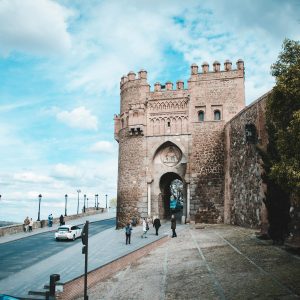Tehran, Riyadh make fresh move to bury hatchet, restore ties
TEHRAN, Iran – Iran has descibed its fifth round of tension-easing talks with Saudi Arabia as “positive” and “progressive”.
The latest round of peace parleys, hosted by the Iraqi government, saw the participation of senior officials from Iran’s top security body and Saudi Arabia’s intelligence service, according to official sources.
Confirming the resumption of talks, Iran’s Foreign Ministry spokesperson Saeed Khatibzadeh said “rapid progress” was expected if negotiations move to a higher political level.
Iraqi Foreign Minister Fuad Hussein, playing the host, said the two sides reached a 10-point memorandum of understanding in the latest round. He said talks between the two sides revolved around security issues and the war in Yemen.
Tehran and Riyadh are pitted against each other in Yemen, where the seven-year war between the Saudi-led coalition and Houthi rebels has spawned the worst humanitarian crisis.
Earlier this month, a nationwide truce saw the warring sides halt their offensive military operations, including cross-border attacks.
Sources in Tehran said that both sides stressed the need to extend the two-month UN-brokered truce in Yemen and agreed to hold the next round of talks at the diplomatic level, potentially between the foreign ministers of the two countries.
The latest round of talks has raised hopes for the two countries to take a step toward the restoration of diplomatic ties, which broke down in 2016.
The high-profile talks between the two estranged neighbors, underway since last April, were suspended by Tehran on March 13, without specifying any reason.
It came a day after Riyadh said it executed 81 men, convicted of “multiple heinous crimes”, which drew sharp condemnations from different governments, including Iran.
Iran said the executions – the largest in the kingdom’s recent history – violated “basic human rights and principles and international law”, fueling fresh tensions.
The severance of diplomatic ties between the two countries in 2016 was triggered by the execution of a prominent Shia cleric in Saudi Arabia, Sheikh Nimr al-Nimr, which saw angry protesters in the Iranian cities of Tehran and Mashhad storming Saudi diplomatic missions.
Hassan Hanizadeh, a commentator on West Asian affairs, said the talks are “complex” as differences are “deep-rooted”.
He, however, added that the fourth and fifth rounds of talks have seen “real progress,” paving the way for a possible meeting between the Iranian and Saudi foreign ministers and exchange of ambassadors.
Hanizadeh believes Riyadh’s willingness to reach a compromise with Tehran could be a “tactical maneuver” linked to the “increasing challenges” it is facing in the region and beyond.
Before the peace talks were abruptly stalled last month, speculation was rife that the two sides are moving to reopen embassies and working on modalities to send Iranians to Saudi Arabia for Hajj and Umrah pilgrimage.
On January 17, Tehran announced that three diplomats had left for Jeddah to assume charge as official representatives at the Organization of Islamic Cooperation (OIC) after a six-year hiatus.
Taking up from where they left in March, according to official sources, the two sides this week continued talks on reopening diplomatic missions and agreed to facilitate the pilgrimage of 40,000 Iranians during the upcoming Hajj season.
Abolfazl Amouei, National Security Committee member from Iran, said the ongoing negotiations are not centered on old differences between Iran and Saudi Arabia over their regional policies.
“Iran is opposed to Saudi Arabia’s approach toward countries like Yemen, Lebanon or Palestine and Saudi officials know that,” he noted. “But this is not an obstacle for the two sides to have good relations as Muslim neighbors.”
“Unlike media speculation, Saudi Arabia’s relations with the US are still strong. But Riyadh is now more realistic on the region and its neighbors,” he noted.
“They are now more convinced that they should live with Iran as its neighbor and play a role in regional affairs.”













